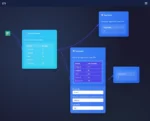Here’s a polished rewrite of the piece with a more modern, consulting-savvy tone, built for blog or LinkedIn visibility—and a few links to dev3lop.com added in naturally to align with your offerings:
The Finance Industry’s Over-Reliance on Data: The Risks and Drawbacks
In today’s finance world, data is king. From algorithmic trading and credit risk modeling to customer segmentation and fraud detection, data-driven strategies have become the norm. But as the industry races to automate, quantify, and optimize, it risks leaning too far into the data pool—and drowning in unintended consequences.
At DEV3LOP, we help businesses strike a healthy balance between data automation and human insight. And in the finance space, that balance is more crucial than ever.
The Hidden Dangers of Biased Data
The finance industry’s love for data often masks a serious issue: bias. Much of the data being used is self-reported, outdated, or pulled from limited sources, creating blind spots in analysis. As a result, decision-making skews toward reinforcing past patterns rather than adapting to changing market realities or underserved demographics.
Without proper data audits or a strategy to ensure diverse inputs, financial institutions risk building tools and processes that serve the few—while alienating the many. This is why we recommend regular data quality assessments and architecture reviews as part of any analytics strategy.
Over-Automation Undermines Accountability
From robo-advisors to loan approval algorithms, automation is everywhere. But when you replace too much human oversight with machines, things go wrong—quietly and at scale.
Automated systems can deny loans, flag transactions, or misjudge creditworthiness based on flawed logic or outdated models. Worse, they often lack transparency. Customers and regulators are left in the dark, unable to understand why a decision was made. At DEV3, we advocate for hybrid systems—automated where it helps, but always layered with explain-ability and human review.
Innovation Takes a Backseat
Chasing yesterday’s KPIs can stall tomorrow’s progress. A hyper-focus on metrics and historical trends can trap teams in a feedback loop of incremental optimization instead of bold innovation.
Many financial organizations struggle to evolve beyond what’s measurable, ignoring qualitative insights, customer empathy, and market intuition. That’s where data consultants can play a key role—unlocking creative solutions that aren’t confined to dashboards and spreadsheets.
The Cost of Keeping Up
Data isn’t cheap. Between storage infrastructure, security protocols, machine learning tools, and full-time data science teams, even mid-size firms can find themselves buried in technical debt.
Smaller players in the financial sector face an uphill battle just to participate. And when data becomes a barrier instead of an advantage, it’s time to reassess your stack. At DEV3LOP, we’ve helped firms trim unnecessary tools, simplify pipelines, and find scalable alternatives to bloated platforms.
Privacy and Trust Are on the Line
As the industry continues to harvest and analyze personal financial behavior, trust hangs in the balance. Data breaches, misuse of personal information, and the creep factor of overly personalized insights can quickly damage brand reputation.
In a post-GDPR, privacy-first world, data ethics are no longer optional—they’re strategic. Transparency in how data is collected, processed, and applied is essential, and your systems need to be designed with accountability at their core.
The Bottom Line
Data is powerful, but it’s not a silver bullet. Over-reliance on it—especially without governance, context, or critical thinking—can introduce risk, erode trust, and stall innovation. The financial services industry needs to rethink the role of data: not as the driver, but as the co-pilot.
Need help building a smarter, more balanced approach to data strategy in finance? Let’s talk.

























